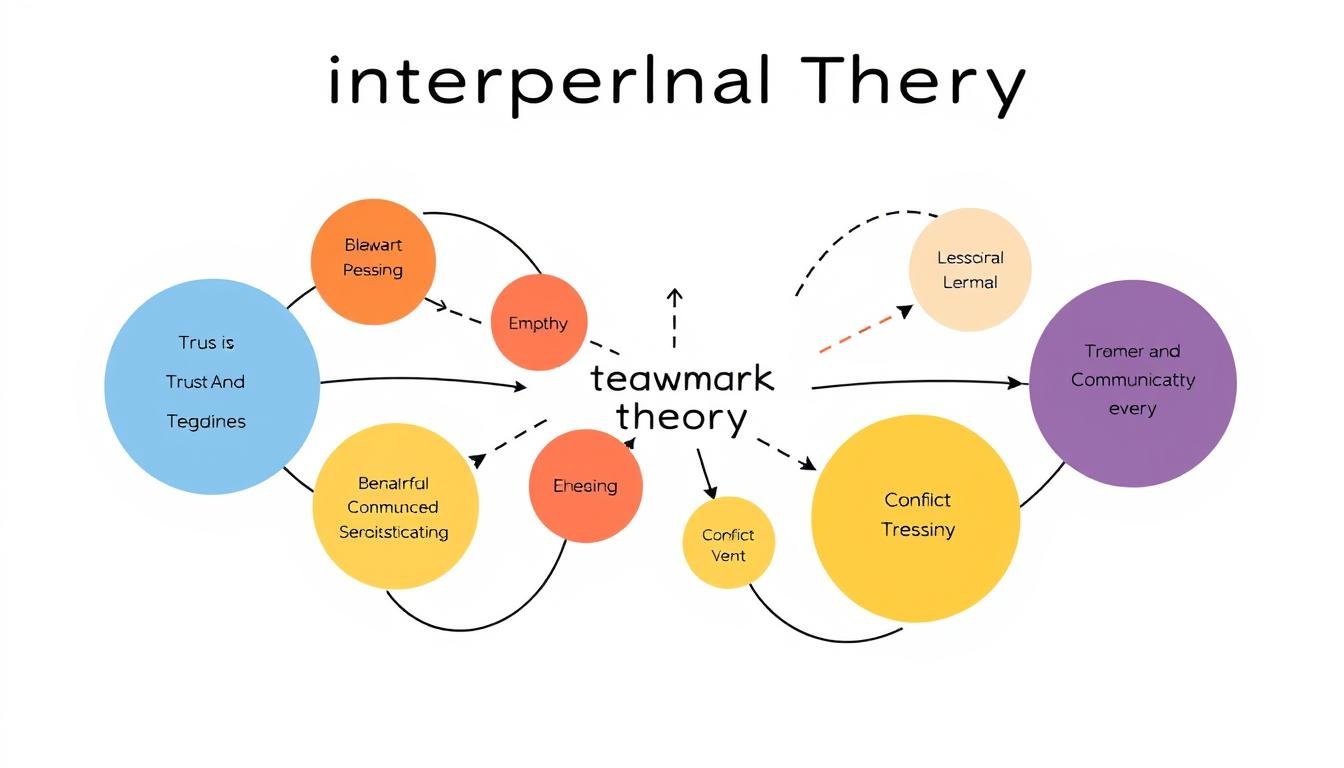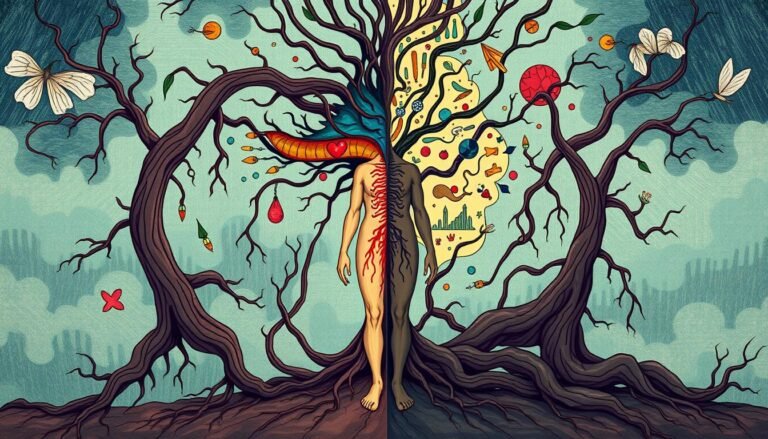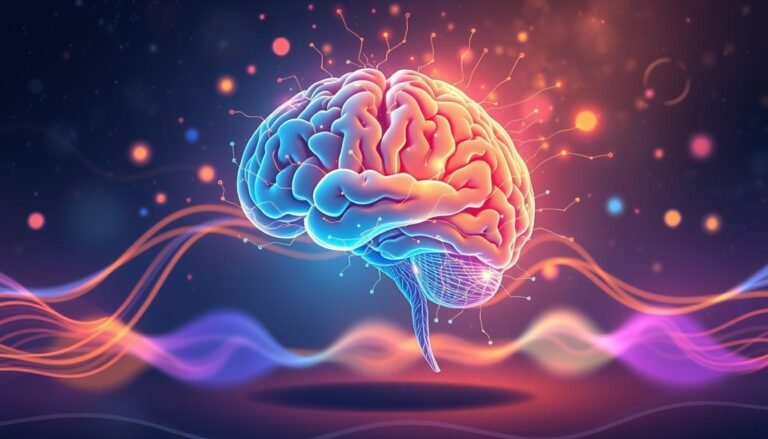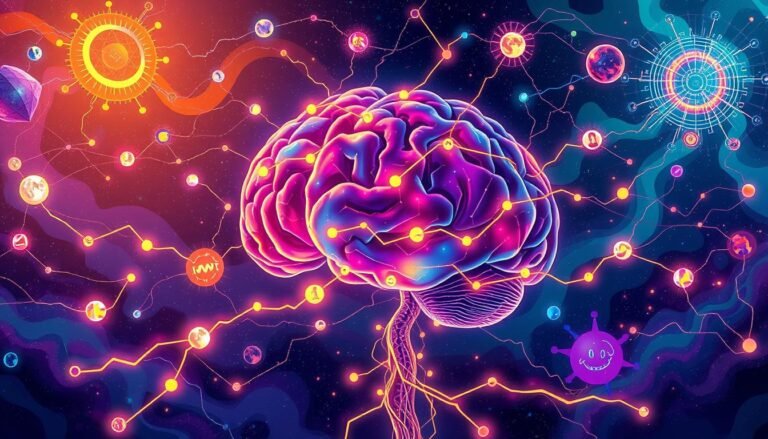Interpersonal Theory: Understanding Human Connections
Ever wondered why some relationships just click, while others are tough? The answer might be in the world of Interpersonal Theory.
Interpersonal Theory is a new way to understand human behavior. It shows how our social interactions shape our personalities and relationships. This theory, from the mid-20th century, changed how we see connections with others.
This theory says our personalities change based on our interactions. It’s different from old psychoanalytic views, which focused on internal drives.
Interpersonal Theory highlights the importance of relationships in shaping us. From our first interactions with caregivers to adult relationships, every social exchange affects us. It influences our thoughts, feelings, and actions.
As we dive into Interpersonal Theory, we’ll see how it helps us understand human connections better. It can improve our communication and lead to healthier, more fulfilling relationships.
The Foundation of Interpersonal Theory
Interpersonal theory changed how we see human connections in the mid-20th century. It brought new insights into personality development and how we interact with others.
Harry Stack Sullivan’s Contributions
Harry Stack Sullivan was born in 1892 and was the first American to develop a full personality theory. He focused on how we grow from infancy to adulthood. He saw preadolescence as key for forming close bonds without lust.
Sullivan’s life experiences, like his friendship with a 13-year-old boy at age 8, influenced his views on human connections.
Key Concepts and Principles
Sullivan’s theory highlights the self-system as a way to manage anxiety and the role of social influence in growing up. He believed that our emotional health and identity are shaped by our social interactions. This makes interpersonal theory unique compared to older views.
Divergence from Traditional Psychoanalysis
Interpersonal theory differs from traditional psychoanalysis by focusing more on social settings than on individual traits or biology. Sullivan’s ideas were initially met with skepticism by some psychoanalysts. Yet, his emphasis on relationships and attachment styles has greatly influenced modern therapy.
| Aspect | Traditional Psychoanalysis | Interpersonal Theory |
|---|---|---|
| Focus | Individual traits, biological factors | Social contexts, relationships |
| Developmental Stages | Psychosexual stages | Developmental epochs |
| Key Concept | Unconscious drives | Self-system as anti-anxiety mechanism |
| Influence on Personality | Internal conflicts | Social interactions |
The Role of Relationships in Personality Development
Relationships are key in shaping who we are. Harry Stack Sullivan’s theory says our personalities grow through connections with others. This idea shows we don’t develop alone.
Shaping Self-Concept and Identity
Our self-image forms through interactions. Sullivan proposed three parts of the self-system: ‘Good Me’, ‘Bad Me’, and ‘Not Me’. These come from early life experiences. How we attract others influences our self-image and how we see others.
Impact of Early Relationships on Mental Health
Early bonds, especially with parents, shape our mental health later. Sullivan identified stages from infancy to late adolescence. Each stage brings new challenges and growth chances. How we perceive others during these stages affects our mental health long-term.
Mutual Influence in Social Interactions
We influence and are influenced by our social world. This mutual influence is central to Sullivan’s theory. It shows how we learn to manage anxiety and form lasting bonds. This influence also applies to today’s world, including social media and online interactions.
- Relationships are fundamental to personality development
- Early interactions shape our self-concept and mental health
- Social experiences influence our behavior and perceptions
Understanding these dynamics helps us build healthier connections. By seeing the power of interpersonal relationships, we can improve our interactions in life.
Anxiety and Interpersonal Dynamics
Anxiety greatly affects how we communicate and interact with others. Studies show that people with social anxiety disorder (SAD) find it hard to keep relationships going. A study by Kashdan et al. (2007) found that those with SAD struggle to keep connections strong.
Anxiety’s impact on relationships is complex. Students with high social anxiety tend to be more submissive and cold, as found by Alden and Phillips (1990). This can make it hard to solve conflicts and can cause tension in social settings.
Anxiety also affects school performance. In China, anxiety rates among middle school students were between 11% and 23.5% from 2001 to 2021. This high anxiety can hurt students’ grades and physical health.
Interestingly, the effect of relationships on anxiety varies. Teacher-student and parent-child relationships have a big impact on anxiety, research shows. This shows how important it is to have positive relationships in schools to lower anxiety.
It’s key to understand how anxiety and relationships are connected. By tackling anxiety in social situations, we can improve communication and build stronger bonds.
Interpersonal Theory in Practice
Interpersonal theory is used in many areas, like psychotherapy, improving communication, and solving conflicts. It helps us understand and strengthen our connections with others. This makes it great for bettering relationships and mental health.
Application in Psychotherapy
In psychotherapy, this theory helps spot and change bad communication habits. Therapists look at how clients interact with others to help them build better relationships. It’s especially helpful in family and couples therapy, where how we interact with each other matters a lot.
Improving Communication Skills
Good communication is essential for strong relationships. Interpersonal theory teaches us how to communicate better. This includes listening well, sharing feelings clearly, and picking up on body language. By getting better at these, we can attract others more and form deeper connections.
Resolving Interpersonal Conflicts
Handling conflicts is a big part of interpersonal theory. It shows us how to deal with disagreements in a way that brings people closer together. By using these methods, we can manage conflicts better and have more fulfilling relationships.
| Aspect | Application | Benefit |
|---|---|---|
| Psychotherapy | Identifying communication patterns | Improved mental health |
| Communication | Developing active listening skills | Enhanced interpersonal attraction |
| Conflict Resolution | Learning constructive strategies | Healthier relationships |
Using interpersonal theory in these ways can really help us improve our relationships and overall happiness. It focuses on communication, attraction, and solving conflicts. This makes it a complete method for bettering our social lives and personal growth.
Conclusion
Interpersonal Theory gives us a deep look into how we connect with others. Developed by Harry Stack Sullivan, it shows how our relationships shape us. It also explains how anxiety affects our social lives.
This theory is all about how our early relationships shape us. It shows how these early interactions can deeply influence our mental health. It’s especially useful in therapy, helping people improve their communication and solve conflicts.
Many studies back up Interpersonal Theory, showing its importance. Research has been done on different groups, like military people and those with mental health issues. These studies highlight the importance of feeling connected and valued in preventing suicide.
As we face mental health issues worldwide, Interpersonal Theory is more important than ever. It teaches us about the impact of our connections. By using this knowledge, we can create a society that values and supports each other better.
Source Links
- Understanding Interpersonal Theory: Shaping Personality through Relationships
- Great Ideas in Personality–Interpersonal Theory
- Theories_of_Personality_7e_Ch08.pdf
- Interpersonal Therapy: History and Theoretical Background
- Interpersonal theory or sullivan theory
- Theory of Interpersonal Behaviour – TheoryHub – Academic theories reviews for research and T&L
- ✅ Harry Stack Sullivan’s Interpersonal Theory of Personality: Social Relationships and Mental Health • Psychology Notes by ThePsychology.Institute
- Interpersonal Problems in Social Anxiety Disorder Across Different Relational Contexts
- Association between interpersonal relations and anxiety, depression symptoms, and suicidal ideation among middle school students
- Interpersonal stress, anxiety and depressive symptoms: Results from a moderated mediation analysis with resilience
- Hildegard Peplau: Interpersonal Relations Theory Guide
- Peplau’s Theory of Interpersonal Relations: An Alternate Factor Structure for Patient Experience Data?
- Sullivan’s Interpersonal Theory – PSYCH-MENTAL HEALTH HUB
- Evidence for the propositions of the interpersonal theory of suicide among a military sample
- The Interpersonal Theory of Suicide: A Systematic Review and Meta-Analysis of a Decade of Cross-National Research








